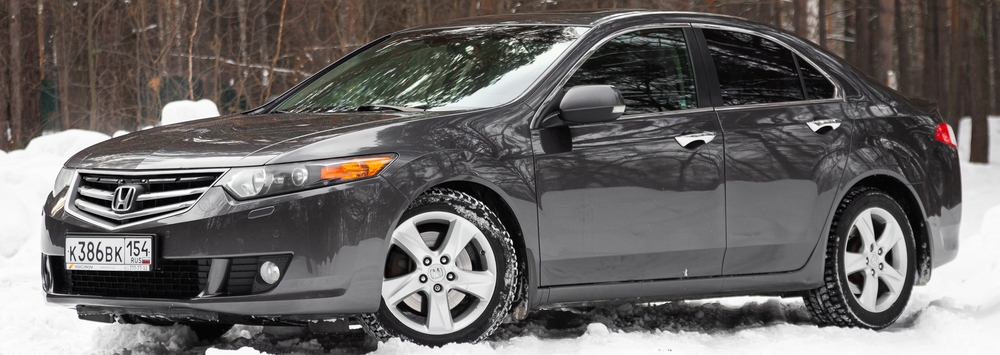
04 Jan Honda Makes Rattling Noises: It’s A Common Problem
 The Honda Accord is popular among car enthusiasts for its reliability, performance, and sleek design. Whether you use it for daily commuting or long road trips, the Honda Accord has proven to be a dependable companion. However, it’s fairly common for Hondas to make rattling noises. Honda owners to experience a rattling noise. Rattling noises from your Honda can stem from various sources. Common culprits for car rattling noises include loose components, worn-out parts, damaged brakes, or exhaust and suspension system. This Blog dives into the reasons behind the Honda Accord’s rattling noise and provides practical solutions to fix the problem.
The Honda Accord is popular among car enthusiasts for its reliability, performance, and sleek design. Whether you use it for daily commuting or long road trips, the Honda Accord has proven to be a dependable companion. However, it’s fairly common for Hondas to make rattling noises. Honda owners to experience a rattling noise. Rattling noises from your Honda can stem from various sources. Common culprits for car rattling noises include loose components, worn-out parts, damaged brakes, or exhaust and suspension system. This Blog dives into the reasons behind the Honda Accord’s rattling noise and provides practical solutions to fix the problem.
Honda Accord Rattling Noises Cause
-
- Worn-out Suspension Components: Worn suspension parts such as ball joints, struts or strut mounts, and sway bar links are the common reasons for rattling noise in a Honda Accord. Timely replacement of damaged parts can prevent further damage.
- Worn-out Exhaust Hangers: Exhaust hangers secure the exhaust system. Worn-out or damaged hangers can cause a rattling noise. Inspect them regularly to identify issues before they escalate.
- Damaged Catalytic Converter: The catalytic converter in your Honda Accord helps to reduce harmful emissions. If damaged or clogged, it can cause a rattling noise, decreased engine performance, and increased fuel consumption. If you notice these symptoms, consult an auto repair professional for an inspection and possible replacement.
- Loose or Damaged Brakes: If the brake pads, rotors, or calipers are loose or damaged, they can generate a rattling noise. Regular brake inspections and maintenance are crucial to ensure proper functioning and address any issues promptly.
- Loose Interior or Exterior Trim: Sometimes, the rattling noise may not be related to the mechanical components of your Honda Accord. Loose interior or exterior trim, such as door panels or side mirrors, can also create a rattling sound. Inspecting and securing any loose trim can help eliminate this source of noise.
Diagnose Rattling Noises Source
If you are hearing a rattling noise in your Honda Accord and are not familiar with the inner workings of your vehicle, diagnosing the noise source can be challenging. However, there are a few steps you can take to narrow down the potential causes.
-
- Listen for the noise: Listen carefully to the rattling noise and note when and where it occurs. Is it during acceleration, deceleration, or at a specific speed? Is it from the front, back, or underneath? These observations can help you locate the problem.
- Inspect the exhaust system: Start by visually inspecting the exhaust system for any obvious signs of damage or loose components. Check the heat shields, exhaust hangers, and the condition of the muffler and tailpipe. If you notice any abnormalities, it’s advisable to consult a professional for a more thorough inspection.
- Check the brakes and suspension: Inspect the brakes for any loose or damaged components. Pay attention to any unusual vibrations or squealing sounds while braking. Additionally, visually inspect the suspension components for signs of wear or damage, such as leaking shocks or worn-out bushings.
Repair Honda Accord Rattling Noises
Once you have identified the source of the rattling noise in your Honda Accord, you can take the necessary steps to address the issue. However, it’s important to note that some repairs may require professional expertise. Here are a few general steps to fix the rattling noise:
-
- Tighten or replace loose components: If loose components are causing rattling noise, tighten or replace them carefully while following proper installation and torque specifications to avoid further damage.
- Repair or replace damaged parts: For severe damage to the exhaust system, brakes, or suspension, consult a professional. Trying to fix complex issues without proper knowledge can worsen the situation.
- Perform regular maintenance: Regular maintenance is crucial for a peaceful ride and to extend the life of your Honda Accord. Make sure to perform routine inspections and oil changes and replace worn-out parts on time to prevent rattling noises.
Preventive Maintenance
Prevention is always better than cure, and when it comes to rattling noises in your Honda Accord, you can take a few preventive measures.
-
- Regular inspections: Inspect your Honda Accord for wear, damage, or loose parts in the exhaust system, brakes, and suspension components. Promptly addressing any issues can prevent rattling noises and more severe problems in the future.
- Timely maintenance: Follow the recommended maintenance schedule for your Honda Accord to ensure optimal performance and reduce the likelihood of rattling noises.
- Avoid harsh driving conditions: Avoid driving over rough roads, excessive speed bumps, or potholes, as they can damage the exhaust system, suspension, and other components, causing rattling noises.
When to Seek Professional Help
While some rattling noises can be addressed with DIY solutions, there are instances where seeking professional help is necessary.
-
- Complex issues with the exhaust system: If the rattling noise persists, consult a repair specialist. They have the expertise to diagnose and fix complex problems effectively.
- Lack of mechanical knowledge: If you lack the necessary mechanical expertise or are unsure about the cause of a rattling noise, seeking professional help is safer. Attempting repairs without proper understanding can lead to further damage and costly repairs.
- Warranty or extended coverage: For Honda Accords under warranty or extended coverage, have repairs done by certified technicians at an authorized dealership to avoid voiding warranty claims.
Consult A Qualified Mechanic
The Honda Accord is a popular car but can experience rattling noises. Regular inspections, prompt addressing of issues, and professional help can keep it running smoothly. Proper maintenance and care will keep it reliable for years.
Please call Ron’s Garage at (734) 961-4701 for same-day or next-day appointments. Otherwise, visit our website for more information or to schedule your next Routine Brake Maintenance Service

